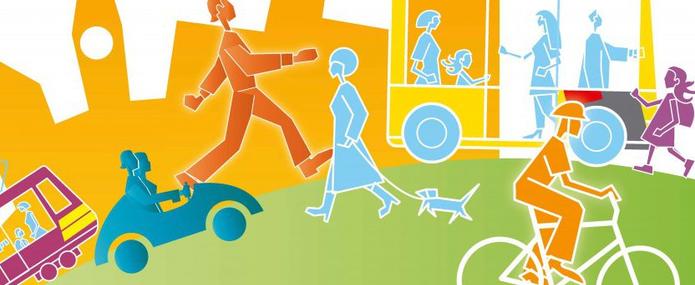“The battle I will fight in the years ahead concerns the transport for everyday life.” At the inauguration of the new Paris-Rennes TGV line on July 1, 2017, Emmanuel Macron highlighted the will of the executive to make daily mobility a major priority of his five-year term of office. This announcement is very positive, as there are many issues regarding daily mobility that must be urgently addressed.
First of all are the environmental issues, since local mobility, which largely involves cars, is one of the main contributors to greenhouse gases and to pollutants that contaminate the air in large urban centres. Mobility is also a major social issue: indeed, mobility is the second largest item of household expenditure in France, at a time when 10% of households are facing very high expenses that account for a large percentage of their income, with potential impacts on their entire social and economic lives. Finally, daily mobility is a financial challenge for many local authorities that fund expensive public transport options that are not used by sufficient numbers to guarantee financial sustainability.
To meet these challenges, a mobility framework act will be presented to the Parliament in early 2018 to define the strategic directions of state policy for the next 10 years. In this context, the Minister for Transport, Elisabeth Borne, is today launching the “National Mobility Conference”. This process of consultation with the general public and all stakeholders in the field of territorial transport aims to identify the main needs and expectations of the French population in preparation for the framework act.
As a research actor with many years of involvement in mobility issues, IDDRI aims to participate in these collective discussions and to contribute to what must become a plan for sustainable mobility. IDDRI’s work provides elements of analysis on four of the six consultation themes defined by the Ministry of Transport: environment, digital revolution, social and territorial disparities, governance and funding.
Clean Mobility
-
Updating policies on vehicle fleet electrification.
Despite the steady increase in sales, the scale of deployment of electric vehicles is not keeping pace with France’s long-term decarbonization targets. There are many obstacles in the way of their mass deployment in the short and medium term. Removing these barriers requires the revision of current policies (financing, recharging infrastructure), to complement them with other measures (second-hand market, credit market) and to anticipate the long-term fiscal impacts (erosion of fiscal revenue related to declining fuel sales), as well as changes in mobility (autonomy).
Study "Electric vehicles in France: A fifteen-year financing plan for massive rollout" (2017) -
Ensuring the work of the Mobility Conference is part of a long-term low carbon transition perspective.
The work of the conference is intended to give concrete support to the future revision of the French National Low Carbon Strategy (SNBC) and the Multiannual Energy Plan (PPE) by informing sectoral scenarios to form coherent links between short to medium-term public policies—which integrate the complexity of the ongoing transformations in the mobility sector—with long-term political objectives such as carbon neutrality by 2050.
Report "Pathways to deep decarbonization of the passenger transport sector in France" (2017)
Connected Mobility
-
Putting autonomous mobility on the road to sustainable development.
Given the pace of innovation shown by private actors, it is essential to act today to be able to seize tomorrow the potential of autonomy for the ecological transition. Contrary to the opinions voiced by the promoters of such innovation, its future is far from being assured: several contrasting scenarios of development and impacts are possible. Public authorities must consider the conditions under which autonomous vehicles can help them achieve their sustainable mobility objectives in order to guide this innovation towards desirable scenarios and to organize the integration of autonomous mobility.
Issue Brief "Accelerating sustainable mobility with autonomous vehicles" (2017)
Blog post "Let’s put the autonomous vehicle on the road to sustainable mobility!" (2017)
Inclusive Mobility
-
Fighting against vulnerability related to mobility.
There is now a critical mass of actors, knowledge and experiments on the issue of mobility vulnerability. State action is needed to support the dissemination of existing local initiatives and their scaling-up. The state must acknowledge this issue and put it on the national agenda; it must encourage territorial actors to act and reinforce the recognition of those that already provide solutions; and it must accompany this dynamic by supporting projects and sharing experiences.
Policy Brief "Combatting mobility-related vulnerability in France" (2017)
Mobilités intermodales
-
Integrating car sharing solutions into public mobility services.
IDDRI’s work shows the potential of these solutions for sustainable daily mobility, provided that local car sharing actors and local authorities work together. While the Mobility Organizing Authorities (AOM) can now finance car sharing solutions using the versement transport tax, the next step is to promote the integration of car-pooling solutions in public services and to develop the necessary framework.
Policy Brief "The new collaborative mobility actors: from promises to challenges for the public authorities" (2016)


